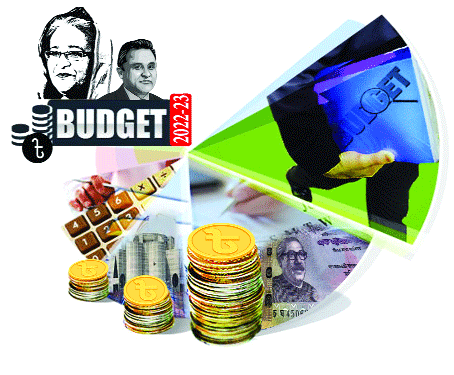Subsidy pressure rises on next budget
Govt bank loan dependency increases
Golam Mostafa Jibon: The pressure of subsidy is going to increase in the next budget breaking all the record of previous period.
Sources said, the Russia-Ukraine war has shaken the world economy in the post corona situation. Almost all the countries in the globe are in crisis due to the rise in commodity prices and inadequacy of supply system. In such a situation, Bangladesh has to pay the budget for the new Fiscal Year (FY). The budget is scheduled to be presented in the National Parliament on June 9. Due to the global turmoil, there is needed additional allocation in this budget for subsidy, so that the extra cost can be met. In the new fiscal budget, there are initiatives to address the crisis, especially incentives, cash loans, agriculture and food subsidies. This will enlarge the size of the budget and also increase the amount of internal borrowing of the government. That is why, an additional Tk 1 trillion may need to borrow from the banking system.
In the current FY 2021-22, a total of Tk 66,825 crore was sanction for subsidy after an amendment. In the new FY 2022-23, the total allocation for this sector is being increased to Tk 82,745 crore. However, if the government raises the prices of electricity, gas and fertilizers and the price of fuel is come to reduce in the world market, the amount of subsidy will come down.
According to preliminary estimates, a total of Tk 6,745 crore may be required for food subsidy in the next financial year. This subsidy has been estimated for the collection and distribution of food grains. In the current budget of 2021-22, Tk 6,000 crore has been allocated for food sector subsidy.
On the other hand, the finance department said, if the price is not adjusted, it will be necessary to allocate Tk 18,000 crore for subsidy in the power sector in the next financial year. Which is double that of the current financial year. In the budget of the current 2021-22 financial year, Tk 9,000 crore has been allocated for subsidy in the power sector.
Similarly, if the price of gas is not adjusted, Tk 17,300 crore will be required to pay the LNG import price and interest subsidy on the incentive package. If the price of fertilizer is not adjusted, Tk 15,000 crore will have to be allocated in the agricultural incentive sector. There is an allocation of Tk 9,500 crore in this sector in the current financial year. Overall, it is proposed to set aside 1.90 per cent of GDP for subsidies, incentives and cash loans in the next financial year, according to Finance Ministry sources.
Outside the food, power, gas and agriculture sectors, the government provides subsidies in various sectors including export, remittance, jute, interests on loans for development projects, incentives of various packages during corona pandemic and Trading Corporation of Bangladesh (TCB), which supplies goods at affordable prices. The price of fuel oil and LNG has risen in the world market due to the increase in global demand in the post-Corona period. At the same time, the prices of food items and fertilizers have also skyrocketed. Commodity prices have increased another notch since the impact of the Ukraine war. Moreover, the cost of transporting goods has also increased several times.
Finance ministry officials said, the forthcoming budget will focus on tackling inflation caused by the Covid pandemic and the Ukraine war, the ensuing global supply crisis and boosting domestic investment.
In addition, implementation of incentive packages announced by the Prime Minister in response to COVID-19 will be implemented.
Among others, expansion of social security activities, free food distribution program and massive job creation activities have been given priority. In all, the Ministry of Finance has initially finalized the budget of Tk 6,77,874 crore for the coming FY 2022-23.
In this year’s budget, the GDP growth target has been set at 7.5 percent. It is being planned to keep the inflation rate at 5.5 percent. However, in the budget of the next financial year, the government’s bank loan dependence will increase. The government will have to borrow about Tk 1 trillion from banks to meet the deficit budget. This is 18.60 percent more than the revised target for the current financial year. Basically this loan has to be done to meet the pressure of additional subsidy expenses.
President Joe Biden tests positive for COVID-19 while campaigning in Las Vegas, has ‘mild symptoms’
International Desk: President Joe Biden tested positive for COVID-19 while traveling Wedne…








